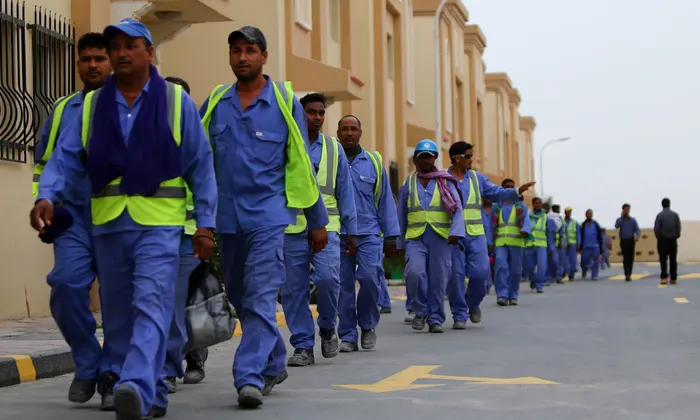Qatar, a rapidly developing nation in the Middle East, has made significant strides in addressing racism and discrimination within its borders. The nation’s legislative framework and its active stance on international platforms demonstrate its commitment to condemning and combating these issues.
Several laws have been implemented at the domestic level, starting with the Qatari Constitution explicitly prohibiting discrimination by promoting equality under Article 35. Another piece of legislation which protect the rights of individuals is Law No. 2 of 2011 on Combating Human Trafficking. The latter is significant in combating exploitation and discrimination against vulnerable groups, including migrant workers.
Furthermore, it is important to take note of the different labour reforms which have been undertaken in the recent years in order to improve the working conditions of migrant workers. The abolishment of the Kafala System serves as an example for the state’s commitment to end racism and discrimination. This change allows workers to change jobs without the need for employer consent, thereby reducing the potential for exploitation and discrimination.
The establishment of a non-discriminatory minimum wage that applies to all workers, regardless of nationality, further represents Qatar’s intention to ensure fair and equitable compensation for all labourers in the country.
Lastly, new regulations have been introduced to ensure that workers receive adequate rest periods, health care, and safety protections. These regulations also mandate timely payment of wages to prevent exploitation and financial discrimination.
Such reforms represent a step towards a more progressive framework of human rights protection, highlighting Qatar’s commitment to uphold international standards. In fact, Qatar is a signatory to several international treaties that prohibit racism and discrimination, further bolstering the nation’s legal framework against such practices. Examples are the International Convention on the Elimination of All Forms of Racial Discrimination (ICERD) singed in 1976, and the ratification of several International Labour Organisation (ILO) conventions, such as No. 100 on Equal Renumeration and No. 111 on Discrimination (Employment and Occupation).
During the Interactive Dialogue with Special Rapporteur on the contemporary forms of racism, racial discrimination, xenophobia, and related intolerance, as part of the 56th session of the United Nations Human Rights Council, the Second Secretary of Qatar affirmed the country’s stance rejecting and opposing all forms of racism, racial discrimination, xenophobia, and related intolerance. More specifically, Sheikh Sultan emphasized that racism and racial discrimination are among the most severe human rights violations, as severely affecting human dignity, life, and security, with hate speech and discrimination inciting hostility and violence against minorities being particularly harmful. He strongly condemned ongoing racist practices against refugees, migrants, and Muslim minorities in some countries, including harassment through legislative measures and government policies based on ethnicity and religion.
Despite significant reforms and declared commitments, Qatar has faced criticism regarding the treatment of migrant workers. More recently, in June 2024, reports emerged highlighting issues faced by migrant workers in the construction sector. Indian and Nepali construction workers reported not receiving wages for over three months and living in overcrowded accommodations with inadequate sanitation, violating Qatari labour laws. Despite the formal abolition of the Kafala system, some employers continued to retain workers’ passports, limiting their freedom of movement. In one case, workers at a landscaping company in Al Wakrah were unable to leave their job sites or return home due to passport confiscation. Delayed implementation of health and safety measures at several construction sites was also reported, with workers lacking proper safety gear and training, leading to workplace injuries. The Qatari government responded by initiating investigations, with the Ministry of Administrative Development, Labour and Social Affairs (MADLSA) inspecting the companies and mandating corrective actions. Non-compliant employers faced fines and other penalties.
While the government’s swift response to these allegations is commendable, the incidents underscore the need for more rigorous enforcement of labour regulations and continuous monitoring to ensure compliance. Continued progress will depend on the effective enforcement of existing laws, sustained advocacy, and international cooperation to uphold the principles of equality and non-discrimination.

